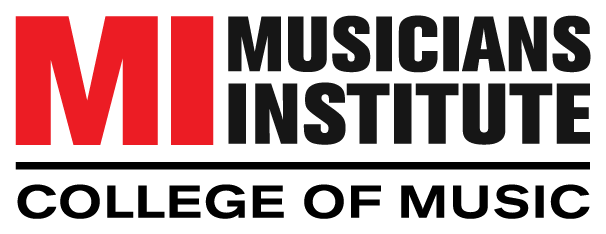When people think of the music industry, the first thing that comes to mind is often the artists themselves. The stage lights, the crowd, the adoration of fans – it’s what we all imagine when we think about the music industry. But the truth is, there are many different career paths in the music business that go far beyond just the stage. From music production to artist management, and booking agents to music publicity, the music business offers a wide range of career options that are essential to the success of the industry.
If you have a passion for music but don’t see yourself as a performer, there are plenty of other avenues to explore. In Musicians Institute’s Music Business School Program, you can gain a comprehensive understanding of the different career paths available in the music industry. Led by seasoned professionals with real-world experience, the Music Business School Program offers in-depth training and interactive learning experiences that will equip you with the knowledge and skills necessary to succeed in any number of music business careers.
Here are just a few of the many career paths you can pursue in the music business:
Music Producer
Music producers are responsible for overseeing the recording, mixing, and mastering of songs and albums. They work with artists to achieve a specific sound and often help with songwriting and arrangement. Music producers are the creative force behind some of the most iconic albums and songs of all time, and their influence can be felt in nearly every genre of music.

Blog Post
"*" indicates required fields
By submitting this form, I authorize Musicians Institute (MI) to make or allow the placement of calls, emails, and texts to me at the phone number that I have provided, including through the use of automated technology, or a prerecorded or artificial voice. I understand that I am not required to provide my phone number as a condition of purchasing any property, goods, or services. I agree to the terms of MI’s Privacy Policy. MI will not sell or rent your information to third parties, and you may unsubscribe at any time.
Recording Engineer
Recording engineers are the technical wizards behind the scenes who ensure that every note is captured with pristine clarity. They are responsible for setting up and maintaining the recording equipment, selecting microphones and other gear, and mixing and editing the final product. Recording engineers work in recording studios, but they may also work on location for live performances or remote recordings.
Artist & Tour Manager
Artist and tour managers are the people who ensure that artists are able to perform at their best. They are responsible for managing the logistics of tours, including booking venues, arranging transportation and accommodations, and managing the budget. They also serve as a liaison between the artist and the rest of the team, ensuring that everyone is on the same page and working together towards a common goal.
Music Teacher
Music teachers have the opportunity to shape the next generation of musicians by providing instruction and guidance to students of all ages. They may work in schools, community centers, or private studios, and they can specialize in a variety of instruments or styles of music. Music teachers need to have a deep understanding of music theory, as well as the ability to communicate that knowledge effectively to students.
Booking Agent
Booking agents are the people who make sure that artists are able to perform in front of an audience. They work with venues and promoters to book gigs and negotiate contracts, and they often have a deep understanding of the live music scene in a particular region. They also need to be able to understand the needs and desires of both the artist and the venue, ensuring that everyone is happy with the arrangements.
Music Publicist
Music publicists are responsible for generating buzz and publicity for artists and their work. They work with media outlets to secure interviews and reviews, create press releases, and coordinate media appearances. Music publicists need to have strong communication skills and the ability to develop relationships with key influencers in the media.
Promotion & Marketing
Promotion and marketing professionals are responsible for developing and executing marketing campaigns that promote artists and their work. They use a variety of channels, such as social media, radio, and advertising, to reach audiences and build brand awareness. Promotion and marketing professionals need to be creative and have a deep understanding of the target audience for each artist.
The music industry is vast and diverse, with numerous career opportunities beyond the stage. The Music Business School Program at Musicians Institute, along with the many other programs offered, provides students with comprehensive training and hands-on experience in various aspects of the industry, including music production, recording engineering, artist and tour management, booking, public relations, and marketing. With the industry constantly evolving and technology playing an increasingly important role, it’s essential to have a solid understanding of the business side of music to succeed.
Whether you are passionate about music and want to turn it into a career, or you are already working in the industry and looking to upskill, the Music Business School Program at Musicians Institute can provide you with the knowledge and skills you need to achieve your goals. With the guidance of industry experts and the opportunity to network with peers and professionals, the possibilities for a successful career in music are endless. Apply to the Musician’s Institute Music Business School or any other program you are interested in online today.

